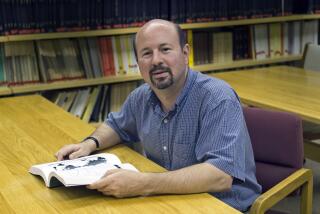Wayne Newton’s $5.2-Million Libel Award Reversed by Court
- Share via
SAN FRANCISCO — A federal appeals court on Thursday overturned a $5.2-million libel damage award to singer Wayne Newton, finding that there was insufficient evidence that NBC newscasts linking the entertainer to organized crime figures were deliberately false or reckless.
The original judgment by a jury in Las Vegas of $19.3 million--sharply reduced by the trial judge--was at the time the largest punitive award for libel on record.
A three-judge panel of the U.S. 9th Circuit Court of Appeals dismissed the suit and held that Newton failed to provide “clear and convincing” evidence that NBC journalists purposely or recklessly lied in their reports--the standard that must be proved by public officials or public figures like Newton in libel actions against news media.
The court’s review of undisputed testimony and the circumstantial and documentary evidence “reveals almost no evidence of actual malice, much less clear and convincing proof,” Judge William A. Norris wrote for the panel.
Citing its duty to give close scrutiny to libel awards, the court pointed to the importance of protecting a journalist’s use of diverse sources and investigative techniques in reporting the news.
“The media should not fear that its journalists’ professional judgments will be second-guessed by juries without benefit of careful independent review,” Norris wrote in a 51-page opinion joined by Judges Alfred T. Goodwin and Dorothy W. Nelson.
Floyd Abrams, a New York lawyer representing the network, called the ruling “a major victory, not only for NBC but for the ability of the public to receive the news.” Dismissal of the case, he said, “should send a signal to others who seek to bring lawsuits without merit designed to punish the press.”
NBC News president Michael Gartner, in a statement issued in New York, praised the unanimity of the court and the language of the ruling, calling it “a sound victory for investigative journalism.”
Morton R. Galane of Las Vegas, attorney for the entertainer, could not be reached immediately for comment.
The case had drawn wide attention from news organization. Attorneys for NBC warned that if the judgment were upheld by the appeals court, it would be much more difficult for news agencies to investigate reports of wrongdoing by public figures. Lawyers for Newton countered that without the ability to obtain sizable punitive damages, victims of the news media would have no effective remedy for defamatory and false publications and broadcasts.
Newton brought suit against NBC, producers Ira Silverman and Paul Greenberg and investigative reporter Brian Ross for a series of news reports in 1980 and 1981, the first of which was called “Wayne Newton and the Law.” The newscasts focused on Newton’s relationship with Guido Penosi, identified as a Mafia figure under investigation in Las Vegas, and reported that federal authorities were looking into Newton’s purchase of the Aladdin hotel-casino in that city.
The network said also that Frank Piccolo, another reputed mob figure, had become a hidden partner in the Aladdin as the result of assisting Newton with an unspecified problem. Later, Penosi and Piccolo were indicted in Connecticut on extortion charges. Piccolo was shot to death before the trial and Penosi was acquitted.
In his suit, Newton charged that the reports falsely stated or gave the false impression that “the Mafia and mob sources” helped him buy the hotel in exchange for a hidden share of the enterprise.
After several delays, a 37-day trial was held in 1986 and the jury brought forth its $19.3-million verdict, finding the defendants liable for defaming Newton. Jurors said they found one false statement and one false impression in NBC’s reports--but did not identify the falsities specifically. U.S. District Judge M. D. Crocker then reduced the judgment, saying that contrary to the jury’s findings, the broadcasts had not tarnished Newton’s “outstanding reputation.”
In Thursday’s ruling, the appeals court threw out the remaining $5.2-million judgment, concluding that any evidence of deliberate misstatements or reckless disregard for the truth had fallen far short of the standard required in libel cases brought by public figures.
The panel rejected Newton’s claim that the network deliberately ignored the truth by failing to cite threats against him as a reason for his contact with Penosi. At the time, the court said, reports of a threat had been denied by the entertainer’s lawyer and the network had valid reason to doubt they were made.
The court said there were valid reasons for giving close attention to verdicts by local juries that favor popular figures. “Wayne Newton’s case poses the danger that First Amendment values will be subverted by a local jury biased in favor of a prominent local public figure against an alien speaker who criticizes that local hero,” Norris wrote.
More to Read
The biggest entertainment stories
Get our big stories about Hollywood, film, television, music, arts, culture and more right in your inbox as soon as they publish.
You may occasionally receive promotional content from the Los Angeles Times.










